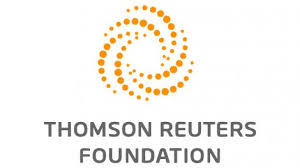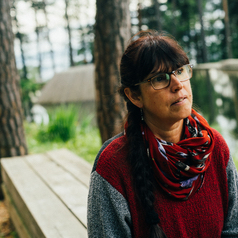wildfires
See the following -
Analysis of 2018's 14 Separate Billion-Dollar Disaster Events in Context
 During 2018, the U.S. experienced a very active year of weather and climate disasters. In total, the U.S. was impacted by 14 separate billion-dollar disaster events: two tropical cyclones, eight severe storms, two winter storms, drought, and wildfires. The past three years (2016-2018) have been historic, with the annual average number of billion-dollar disasters being more than double the long-term average. The number and cost of disasters are increasing over time due to a combination of increased exposure, vulnerability, and the fact the climate change is increasing the frequency of some types of extremes that lead to billion-dollar disasters.
During 2018, the U.S. experienced a very active year of weather and climate disasters. In total, the U.S. was impacted by 14 separate billion-dollar disaster events: two tropical cyclones, eight severe storms, two winter storms, drought, and wildfires. The past three years (2016-2018) have been historic, with the annual average number of billion-dollar disasters being more than double the long-term average. The number and cost of disasters are increasing over time due to a combination of increased exposure, vulnerability, and the fact the climate change is increasing the frequency of some types of extremes that lead to billion-dollar disasters.
- Login to post comments
Assisting California Wildfires Victims Retrieve their Medical Histories
 The horrific California wildfires which have devasted entire communities, caused loss of life and displaced tens of thousands of Californians is touching all of us. At Humetrix our public health driven mission has led us to develop tools for individuals to help be prepared and be safe during emergencies, we want to step in and help those with ongoing health care needs, while their physician offices or hospital-based care have now been destroyed. With this destruction, the health records of thousands of fire victims with chronic conditions, or on daily medications and special needs are now gone, leaving many with the incapacity to fully recollect their important medical history when seeking care away from what was home.
The horrific California wildfires which have devasted entire communities, caused loss of life and displaced tens of thousands of Californians is touching all of us. At Humetrix our public health driven mission has led us to develop tools for individuals to help be prepared and be safe during emergencies, we want to step in and help those with ongoing health care needs, while their physician offices or hospital-based care have now been destroyed. With this destruction, the health records of thousands of fire victims with chronic conditions, or on daily medications and special needs are now gone, leaving many with the incapacity to fully recollect their important medical history when seeking care away from what was home.
- Login to post comments
Creating a High-Speed Internet Lane for Emergency Situations
 During large disasters, like hurricanes, wildfires and terrorist attacks, people want emergency responders to arrive quickly and help people deal with the crisis. In order to do their best, police, medics, firefighters and those who manage them need lots of information: Who is located where, needing what help? And what equipment and which rescuers are available to intervene? With all of the technology we have, it might seem that gathering and sharing lots of information would be pretty simple. But communicating through a disaster is much more challenging than it appears...
During large disasters, like hurricanes, wildfires and terrorist attacks, people want emergency responders to arrive quickly and help people deal with the crisis. In order to do their best, police, medics, firefighters and those who manage them need lots of information: Who is located where, needing what help? And what equipment and which rescuers are available to intervene? With all of the technology we have, it might seem that gathering and sharing lots of information would be pretty simple. But communicating through a disaster is much more challenging than it appears...
- Login to post comments
Five Humanitarian Crises Largely Overlooked in 2015
 From civil war and urban gang violence to drought, some humanitarian crises around the world receive less media attention and donor funding than others and are less visible. Below are the top five humanitarian crises of 2015, in no particular order, which aid agencies say deserve more attention on the world stage: Rampant gang violence, poverty and the lack of jobs push hundreds of people a month to leave the 'Northern Triangle' nations of El Salvador, Honduras and Guatemala and seek work and refuge in the United States and other Latin American countries...
From civil war and urban gang violence to drought, some humanitarian crises around the world receive less media attention and donor funding than others and are less visible. Below are the top five humanitarian crises of 2015, in no particular order, which aid agencies say deserve more attention on the world stage: Rampant gang violence, poverty and the lack of jobs push hundreds of people a month to leave the 'Northern Triangle' nations of El Salvador, Honduras and Guatemala and seek work and refuge in the United States and other Latin American countries...
- Login to post comments
How DoD Plans to Leverage Artificial Intelligence and Open Source to Improve Emergency Response and Disaster Relief
 Some might not know it, but the US military plays a key role in US disaster response strategy and, accordingly, the Department of Defense (DoD) has prioritized its disaster response mission and is investing heavily towards increasing its capabilities and effectiveness. Technology is a big part of all modern DoD missions, and disaster response is no different. The most promising and transformative technology on the horizon for our future, and for the future of the DoD, is Artificial Intelligence (AI). So how exactly will the DoD leverage Artificial Intelligence technologies in order to meet the demands of the disaster response mission? Is a new Center of Excellence created by DoD, called the Joint Artificial Intelligence Center (JAIC). Read More »
Some might not know it, but the US military plays a key role in US disaster response strategy and, accordingly, the Department of Defense (DoD) has prioritized its disaster response mission and is investing heavily towards increasing its capabilities and effectiveness. Technology is a big part of all modern DoD missions, and disaster response is no different. The most promising and transformative technology on the horizon for our future, and for the future of the DoD, is Artificial Intelligence (AI). So how exactly will the DoD leverage Artificial Intelligence technologies in order to meet the demands of the disaster response mission? Is a new Center of Excellence created by DoD, called the Joint Artificial Intelligence Center (JAIC). Read More »
- Login to post comments
Is the US Finally Ready to Get Serious About Biodefense?
 Biological and other disaster threats - whether accidental, driven by forces of nature, or intentional - pose fairly grave risks to the United States and the world. Situational awareness has been a conspicuous topic ever since the 9/11 attacks and the anthrax scare that followed shortly thereafter. Since then we have experienced numerous disasters: health impacts of major weather events such as hurricanes and earthquakes, new virus outbreaks like Ebola in Africa, raging wildfires on the West Coast (I live in California), and the ever-present threat of pandemic flu which a hundred years ago infected some 500 million people across the globe and killed an estimated 50 million people worldwide, according to the Center for Disease Control and Preparedness (CDC). But since the initial flurry of public health preparedness funds in the ensuing several years after the 9/11 attacks, this topic has not had a high priority at CDC nor the funding necessary to implement it successfully.
Biological and other disaster threats - whether accidental, driven by forces of nature, or intentional - pose fairly grave risks to the United States and the world. Situational awareness has been a conspicuous topic ever since the 9/11 attacks and the anthrax scare that followed shortly thereafter. Since then we have experienced numerous disasters: health impacts of major weather events such as hurricanes and earthquakes, new virus outbreaks like Ebola in Africa, raging wildfires on the West Coast (I live in California), and the ever-present threat of pandemic flu which a hundred years ago infected some 500 million people across the globe and killed an estimated 50 million people worldwide, according to the Center for Disease Control and Preparedness (CDC). But since the initial flurry of public health preparedness funds in the ensuing several years after the 9/11 attacks, this topic has not had a high priority at CDC nor the funding necessary to implement it successfully.
- Login to post comments
The Troubling Data Behind America's Growing Wildfires
It's hard to process yesterday's deaths of 19 firefighters in Arizona. The tragedy is so stark an outlier that most states haven't seen that many deaths of firefighters due to wildfire in their combined histories. But there is one worrisome trend: fires are getting bigger and often deadlier. Read More »
- Login to post comments
What Western States Can Learn From Native American Wildfire Management Strategies
 News media coverage of wildfires commonly frames them as "natural disasters" - dangerous elements of the natural world over which humans have little control. The language of climate change, fear of fire and the sense that it has become inevitable can be overwhelming, leaving people with the view that little can be done to manage these events. But in fact, people aren't helpless. While fires can be dangerous, they are inevitable and necessary in many ecosystems, and humans have long adapted to them. Across North America, indigenous peoples have actively managed forest ecosystems through the use of fire. Euro-American settlers were struck by the rich biodiversity of California's forests, woodlands and prairies, but they didn't understand that indigenous people's use of fire was responsible for them.
News media coverage of wildfires commonly frames them as "natural disasters" - dangerous elements of the natural world over which humans have little control. The language of climate change, fear of fire and the sense that it has become inevitable can be overwhelming, leaving people with the view that little can be done to manage these events. But in fact, people aren't helpless. While fires can be dangerous, they are inevitable and necessary in many ecosystems, and humans have long adapted to them. Across North America, indigenous peoples have actively managed forest ecosystems through the use of fire. Euro-American settlers were struck by the rich biodiversity of California's forests, woodlands and prairies, but they didn't understand that indigenous people's use of fire was responsible for them.
- Login to post comments
Call for Code Hackathon - California Wildfires
Calling all Developers, Designers, and Domain Experts! In recognition of Wildfire Community Preparedness Day on May 4, 2019, IBM and 42 Silicon Valley are teaming up to host a one-day hackathon to help developers, engineers, designers, and emergency responders work on projects around Natural Disaster Preparedness and Relief during wildfires with a focus on community health and well-being. The hackathon will be held on the 42 Silicon Valley campus in Fremont, California.
- Login to post comments